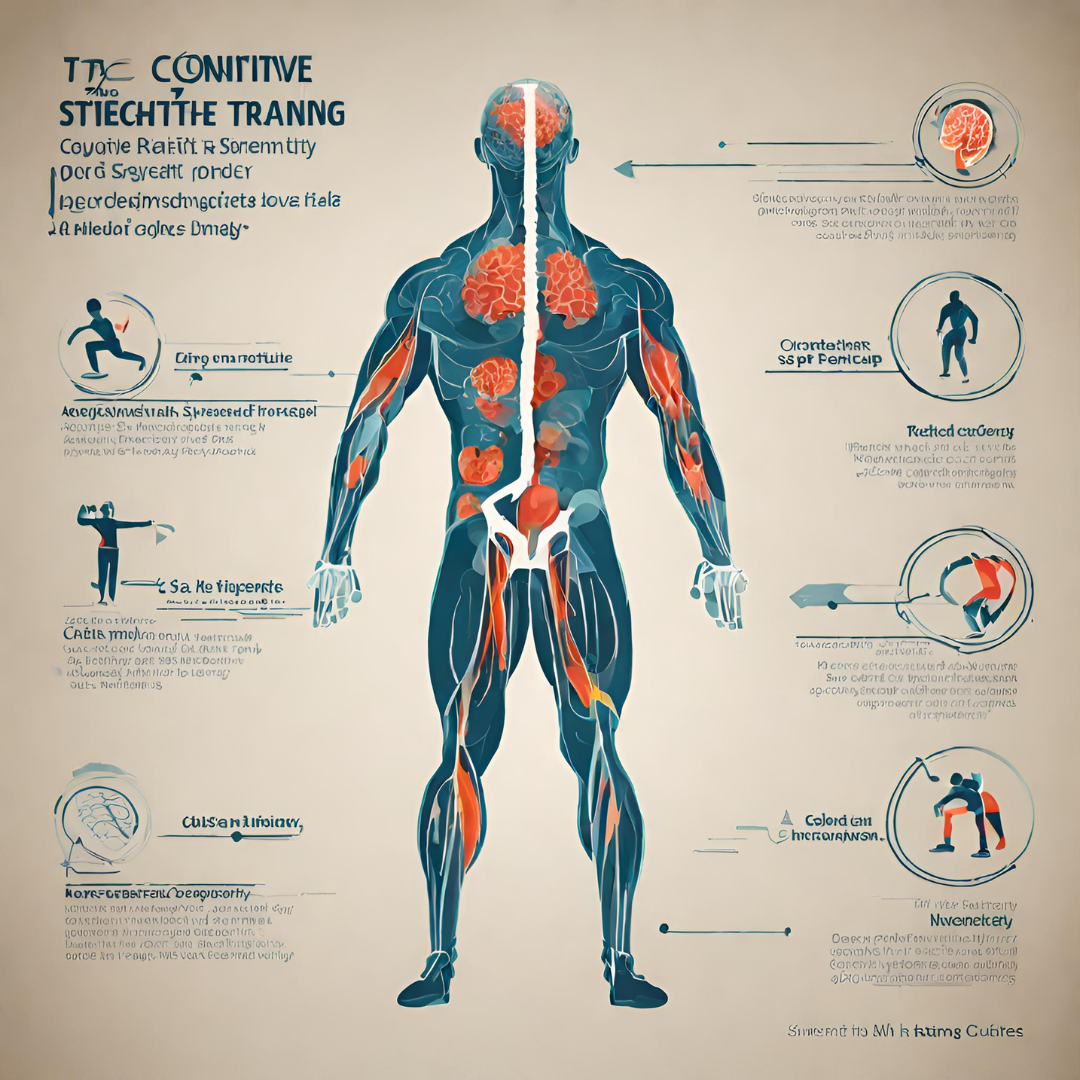The Cognitive and Longevity Benefits of Physical Strength Training

In recent years, physical strength training has gained recognition not just for its impact on muscular fitness, but also for its profound benefits on cognitive function, brain health, and longevity. This article explores the myriad ways in which regular strength training contributes to these aspects of health and well-being.
The Cognitive, Brain Health, and Longevity Benefits of Physical Strength Training
- Cognitive Enhancement Through Strength Training
Physical strength training, often synonymous with weight lifting and resistance exercises, is a powerful tool for enhancing cognitive function. Research has demonstrated that engaging in strength training can lead to improvements in memory, executive function, and processing speed.
- Memory Improvement: Studies have found that strength training can improve both short-term and long-term memory. This is attributed to the release of brain-derived neurotrophic factor (BDNF), a protein that plays a crucial role in memory formation.
- Enhanced Executive Function: Executive functions, which include tasks like planning, organization, and multitasking, are positively influenced by regular strength training. The increased blood flow to the brain during physical exercise is believed to enhance these cognitive faculties.
- Faster Processing Speed: As we age, our processing speed tends to decline. Strength training has been shown to counteract this decline, keeping the brain sharp and responsive.
- Brain Health and Neuroprotection
Strength training goes beyond mere muscle building; it is also a potent promoter of brain health. It has been linked to increased brain volume, particularly in the hippocampus, which is crucial for memory and spatial navigation.
- Reduction in Cognitive Decline: Regular strength training is associated with a lower risk of cognitive decline in older adults, particularly those at risk for Alzheimer’s disease and other forms of dementia.
- Increased Brain Volume: Regular exercise, including strength training, can increase the volume of the hippocampus. This is especially significant in older adults, as the hippocampus is one of the first regions of the brain to suffer damage in Alzheimer’s disease.
- Neuroplasticity: Strength training supports neuroplasticity, the brain’s ability to reorganize itself by forming new neural connections throughout life. This ability is essential for learning and recovery from brain injuries.
- Longevity and Healthspan
Physical strength is a key indicator of overall health and longevity. Maintaining muscle mass and strength is crucial as we age, not only for mobility and independence but also for extending healthspan – the period of life spent in good health.
- Prevention of Sarcopenia: Sarcopenia, the age-related loss of muscle mass and strength, can be significantly mitigated through regular strength training. Maintaining muscle mass is critical for metabolic health, balance, and the reduction of fall risk in older adults.
- Improved Metabolic Health: Strength training enhances metabolic health by improving insulin sensitivity, reducing the risk of obesity, type 2 diabetes, and cardiovascular diseases – all of which are significant contributors to mortality.
- Enhanced Immune Function: Regular strength training can bolster the immune system, which is essential for disease prevention and longevity. It does this by reducing inflammation and improving the body’s ability to fight off infections and diseases.
In conclusion, physical strength training is a multifaceted approach to health and wellness, offering significant benefits not only for physical fitness but also for cognitive function, brain health, and longevity. By incorporating regular strength training into our routines, we can enhance our cognitive abilities, protect our brain health, and potentially extend our healthspan. As always, it’s advisable to consult with a healthcare provider before starting any new exercise regimen, especially for individuals with pre-existing health conditions.


